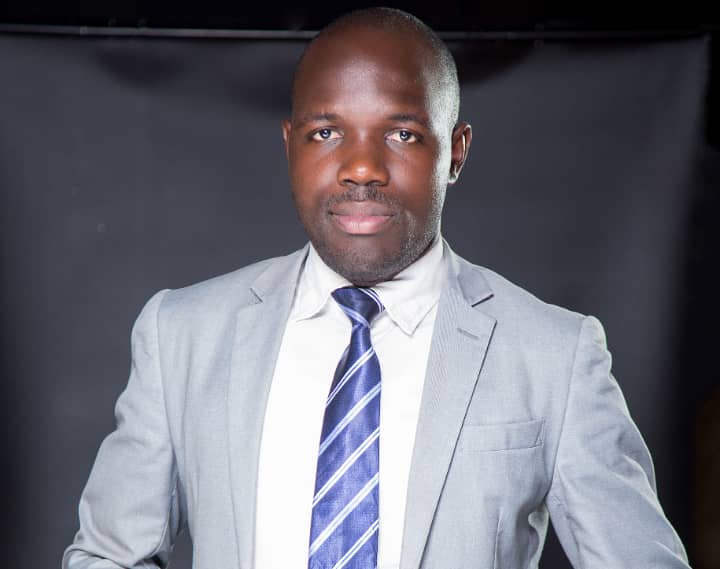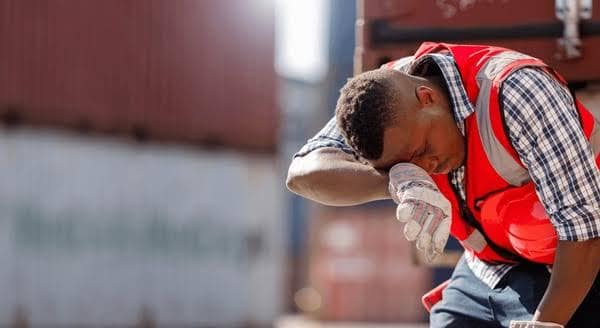
Resisting neo-colonialism should be a priority for next AUC head
By Kungu Al-mahadi AdamAs Africa prepares to choose its next African Union Commission (AUC) Chairperson, the stakes are high.The four candidates—Kenya’s Raila Odinga, Djibouti’s Mahamoud Ali Youssouf, Madagascar’s Richard Randriamandrato, and Mauritius’ Anil Gayan—bring with them unique experiences and perspectives.However, one issue that transcends their platforms is the need for Africa to push back against the continued presence of neo-colonialism on the continent.At a time when Africa is grappling with internal challenges and global dynamics, the next AUC Chairperson must prioritize resisting external influence disguised as “cooperation” or “development aid.”Many African countries gained independence in the mid-20th century, but several remain shackled by the vestiges of colonialism. Foreign powers continue to exert influence through multinational corporations, international financial institutions, and even political meddling.Africa is rich in natural resources, but external powers often dictate how these resources are extracted, processed, and traded—leaving African economies vulnerable.Candidates vying for the AUC Chairperson slot must confront these forces head-on. Africa can no longer afford to remain a playground for global powers seeking to extract wealth while perpetuating poverty and underdevelopment.One of the primary ways neo-colonialism manifests is through economic dependency. Many African nations remain reliant on foreign loans, aid packages, and foreign direct investment, often tied to conditions that prioritize the interests of lenders rather than African citizens.The World Bank, International Monetary Fund (IMF), and other financial institutions continue to dictate economic policies that limit Africa’s ability to implement its own development strategies.Candidates for AUC leadership must push for a continent-wide economic strategy that emphasizes self-reliance and inter-African trade. The African Continental Free Trade Area (AfCFTA) is a significant step forward, but the incoming chairperson must ensure its effective implementation.By boosting intra-African trade and reducing dependency on external markets, the AUC can foster a more resilient and independent African economy.Foreign intervention in African politics is another tool of neo-colonialism. From the manipulation of electoral processes to the propping up of authoritarian regimes, external actors continue to interfere in African governance.This undermines Africa’s sovereignty and distorts democratic processes, leaving African leaders beholden to foreign interests rather than their own people.The next AUC chairperson must take a strong stance on protecting Africa’s political integrity. By advocating for genuine democracy, good governance, and accountability across the continent, the AUC can create an environment where African leaders are free from external coercion.Additionally, partnerships with external nations should be built on mutual respect and benefit—not coercion or exploitation.Neo-colonialism also takes on cultural forms, where African identities, values, and traditions are often sidelined or undermined by Western norms. African leaders must be champions of Pan-Africanism—a philosophy that emphasizes African unity, culture, and shared destiny.The AUC chairperson has a responsibility to promote the African Union’s Agenda 2063, which envisions a united, peaceful, and prosperous Africa driven by its people’s culture and heritage.By prioritizing African knowledge systems, languages, and cultural practices, the incoming AUC Chairperson can help Africans reclaim their identity and build a future that is informed by African ideals rather than foreign ones.Whichever candidate emerges victorious must recognize that the chairperson’s role is not simply to manage the day-to-day affairs of the AU. This position requires bold leadership, especially in confronting the insidious influence of neo-colonialism.The Chairperson must foster stronger cooperation among African nations while scrutinizing and renegotiating Africa’s relationships with the rest of the world. There should be an emphasis on creating partnerships that benefit African development rather than perpetuating dependency.Furthermore, the chairperson must advocate for African representation in global institutions to ensure that African voices are heard and respected on the world stage.All in all, the next African Union Commission Chairperson has a crucial role in ensuring that Africa steps out from under the shadow of foreign influence.The writer is a Ugandan journalist with a passion for current African affairsadamkungu7@gmail.comhttps://www.ugbulletin.co.ug/resisting-neo-colonialism-should-be-a-priority-for-next-auc-head/
News
Ugandan Citizen Abducted, Held in Secret Detention for Three Months, Sparks Outrage and Calls for Justice

A disturbing new case of unlawful detention has surfaced, highlighting the ongoing human rights crisis in Uganda. A Ugandan citizen was reportedly abducted and held in a secret facility, known as a “safe house,” for three months, only to be released without charge or explanation. This incident, reported by NTV Uganda, has sparked widespread condemnation and renewed calls for accountability regarding human rights abuses in the country.
While the details surrounding the abduction remain unclear, reports indicate that the individual was taken without due process and held incommunicado—an action that has long been condemned by human rights organizations. The victim’s release, with no charges filed and no clear justification, has angered activists and citizens, who view this as yet another case of egregious abuse of power by the state.
“This is a recurring pattern,” said one human rights activist. “Abductions, secret detentions, and unexplained releases have become all too common in Uganda. These acts violate fundamental human rights and erode public trust in the justice system.”
The use of “safe houses,” unregistered detention facilities reportedly operated by security forces, has been a focal point in numerous allegations of torture and illegal imprisonment. Despite repeated calls from both local and international organizations for their closure and accountability for those involved, little action has been taken to address these violations.
This case underscores the urgent need for reform within Uganda’s security apparatus and greater accountability for human rights abuses. Observers hope that drawing attention to these injustices will spur concrete action to bring those responsible to justice and ensure the protection of basic human rights.
As frustration mounts, calls for both domestic and international pressure to hold the government accountable for such crimes grow louder. “One day, there must be accountability for all these crimes against our people,” stated one social media user, reflecting the sentiments of many Ugandans.
News
NUP Gathering Disrupted: Kyagulanyi Alleges Security Force Harassment and Arrests

National Unity Platform (NUP) President Robert Kyagulanyi has accused Ugandan security forces of using excessive force to disrupt a planned NUP gathering. The allegations were detailed in a statement shared on Twitter, following an event held to honor children of NUP supporters who were killed, disappeared, or detained for their political beliefs.
According to Kyagulanyi, security personnel, under the command of an officer identified as Asiimwe, carried out a preemptive operation early in the morning upon learning of the NUP’s plans. The forces allegedly stormed the premises, arrested workers, and deployed tear gas to disperse those present.
“The criminals under the command of one Asiimwe deployed early morning, arrested our workers, and threw tear gas into our premises. They’ve cordoned off the premises and blocked all people from accessing the place,” Kyagulanyi wrote.
Among those reportedly arrested were Saava Peter, Mudenya Samson, and Turyasingura Samson. Kyagulanyi claimed the detained workers were subjected to beatings and interrogated about their political affiliations, with security operatives labeling them as terrorists.
“These JATT operatives asked the workers who they support politically, branding them terrorists and criminals—their only crime being that they work with us. You can imagine the indignity!” Kyagulanyi lamented.
This incident adds to the growing tension in Uganda’s political climate, where opposition parties frequently accuse the government of stifling dissent. Despite the challenges, Kyagulanyi ended his statement with a message of defiance and optimism, proclaiming, “UGANDA WILL BE FREE.”
NUP Gathering Disrupted: Kyagulanyi Alleges Security Force Harassment and Arrests
News
Sudan Demands Apology from Uganda Over Army Chief Muhoozi Kainerugaba’s Threat to Invade Khartoum

Sudan has demanded an official apology from Uganda over “offensive and dangerous” comments made by the chief of Uganda army staff, who threated to invade Khartoum, the Sudan Tribune has reported.
General Muhoozi Kainerugaba, son of Ugandan President Yoweri Museveni and CDF of the Ugandan army, posted two comments on the X platform on Tuesday in which he threatened “to capture Khartoum” with the support of the US President elect Donald Trump after he takes office. The posts were deleted later.
“The government of Sudan demands and official apology from the Ugandan government for the offensive and dangerous comments of the army commander,” Sudan’s foreign ministry said in a statement that the Sudan Tribune said it has seen.
Sudan Demands Apology from Uganda Over Army Chief Muhoozi Kainerugaba’s Threat to Invade Khartoum






